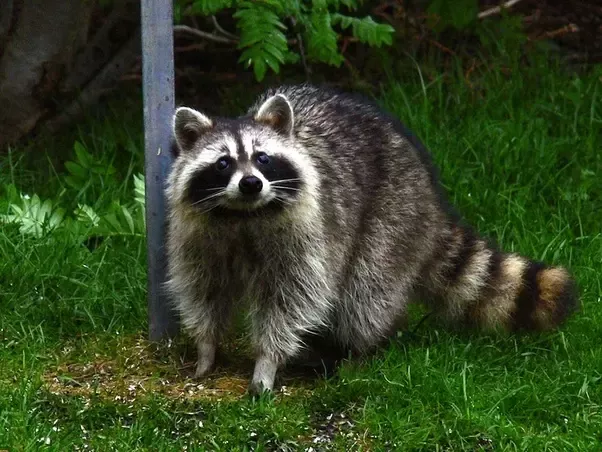Where is it Legal to Own a Raccoon?
Raccoons have long captured the imagination of people across the United States. Their unique appearance, intelligence, and playful nature make them appealing as pets. However, the legality of owning a raccoon varies greatly from state to state. In this comprehensive article, we will explore the legal landscape surrounding raccoon ownership, the reasons behind these laws, and the implications for prospective raccoon owners.
The Legal Status of Raccoons
Raccoons are considered wild animals in most parts of the United States. As such, they fall under the jurisdiction of state wildlife agencies and are subject to specific regulations regarding ownership. The majority of states prohibit the private ownership of raccoons, citing concerns about public health, safety, and the well-being of the animals themselves.However, a small number of states do allow the ownership of raccoons, often with strict regulations and requirements. These states include:
- Arkansas
- Delaware
- Florida
- Illinois
- Indiana
- Michigan
- Nebraska
- New Jersey
- Ohio
- Oklahoma
- Rhode Island
- South Carolina
- South Dakota
- Tennessee
- Texas
- Vermont
- West Virginia
- Wisconsin
- Wyoming
It’s important to note that even in these states, local ordinances (city or county laws) may further restrict or ban the practice of keeping raccoons as pets.
Reasons for Raccoon Ownership Laws
The reasons behind the varying laws regarding raccoon ownership are complex and multifaceted. Here are some of the key factors that influence these regulations:
- Public Health and Safety: Raccoons can carry diseases transmissible to humans, such as rabies, distemper, and roundworm. They can also be unpredictable and aggressive, posing a risk to both owners and the general public.
- Animal Welfare: Raccoons are wild animals with specific needs that can be difficult to meet in a captive environment. Improper care can lead to health issues and behavioral problems.
- Environmental Concerns: Allowing private ownership of raccoons can lead to the release or escape of these animals into non-native habitats, potentially disrupting local ecosystems.
- Enforcement Challenges: Regulating the ownership of raccoons can be challenging for wildlife agencies, as it requires resources for permitting, inspections, and responding to complaints.
Requirements for Owning a Raccoon
In states where raccoon ownership is legal, there are typically several requirements that prospective owners must meet:
- Permits and Licenses: Owners may need to obtain a special permit or license from the state wildlife agency, often requiring proof of adequate facilities and experience in caring for raccoons.
- Veterinary Care: Raccoons must be examined by a licensed veterinarian and may need to be vaccinated against diseases like rabies.
- Facility Requirements: Owners must provide a secure, spacious enclosure that meets the animal’s physical and behavioral needs, such as access to water, hiding places, and enrichment items.
- Reporting Requirements: Owners may be required to report any incidents involving their raccoon, such as bites, escapes, or transfers to other owners.
Challenges and Considerations
Owning a raccoon as a pet comes with its own set of challenges and considerations:
- Specialized Care: Raccoons have specific dietary, housing, and enrichment needs that can be difficult and expensive to meet in a home environment.
- Behavioral Issues: Raccoons can be destructive, mischievous, and aggressive, especially as they mature. They may engage in behaviors like biting, climbing, and raiding food sources.
- Difficulty Finding Veterinary Care: Finding a veterinarian with experience in treating raccoons can be challenging, especially in areas where they are not commonly kept as pets.
- Lack of Social Interaction: Raccoons are highly social animals, and keeping them alone can lead to behavioral problems and stress.
- Legal Risks: Owners may face legal consequences if their raccoon escapes, bites someone, or is found to be living in substandard conditions.
Conclusion
The legality of owning a raccoon in the United States is a complex and often controversial topic. While a small number of states allow private ownership with strict regulations, the majority prohibit it due to concerns about public health, animal welfare, and environmental protection. Prospective raccoon owners must carefully research the laws in their state and local area, as well as the challenges and responsibilities associated with caring for these unique animals.
Summary Table
| State | Legal Status | Permit Required | Notes |
|---|---|---|---|
| Arkansas | Legal | No | Raccoon must be taken “by hand” from the wild |
| Delaware | Legal | Yes | Inspection required |
| Florida | Legal | Yes | No cost permit |
| Illinois | Legal | Yes | $25.50 annually |
| Indiana | Legal | Yes | $20 annually |
| Michigan | Legal | Yes | $45 every 3 years |
| Nebraska | Legal | Yes | $33 permit required before purchase |
| New Jersey | Legal | Yes | Two permits required, no USDA-licensed breeders |
| Ohio | Legal | Yes | $25, owner may keep up to four captive-bred raccoons |
| Oklahoma | Legal | Yes | $48 annually, pre-purchase inspection required |
| Rhode Island | Legal | No | |
| South Carolina | Legal | Yes | |
| South Dakota | Legal | Yes | |
| Tennessee | Legal | Yes | $31 annually, raccoon must be captive-born |
| Texas | Legal | Yes | Permit from Department of Fish and Game |
| Vermont | Legal | No | |
| West Virginia | Legal | Yes | |
| Wisconsin | Legal | Yes | |
| Wyoming | Legal | Yes |
For more detailed information on the legality of owning a raccoon in the United States, you can refer to the World Population Review’s article on Pet Raccoon Legal States.
FAQ Section
Q1: Is it legal to own a raccoon in my state?
The legality of owning a raccoon varies by state. You can check the summary table or consult your state’s wildlife agency for specific regulations.
Q2: What are the requirements for owning a raccoon in states where it is legal?
Requirements typically include obtaining a permit, providing adequate housing, meeting veterinary care standards, and reporting any incidents involving the raccoon.
Q3: Can I keep a raccoon I found in the wild as a pet?
No, it is illegal to take a raccoon from the wild in most states, even if you plan to keep it as a pet. Raccoons should only be obtained from licensed breeders or rehabilitation centers in states where ownership is legal.
Q4: What are the risks of owning a raccoon as a pet?
Risks include potential aggression, destructive behavior, the spread of diseases, and legal consequences if the raccoon escapes or is found to be living in substandard conditions.
Q5: How do I find a veterinarian who can treat my pet raccoon?
Finding a veterinarian with experience in treating raccoons can be challenging, especially in areas where they are not commonly kept as pets. You may need to search for exotic animal veterinarians or contact your state wildlife agency for recommendations.
Q6: What happens if I move to a state where raccoon ownership is illegal?
If you move to a state where raccoon ownership is prohibited, you will likely need to find a new home for your pet raccoon, as most states do not allow the importation of these animals.
Q7: Can I breed my pet raccoon and sell the offspring?
Breeding and selling raccoons is heavily regulated in most states that allow ownership. You will need to obtain the necessary permits and follow strict guidelines to engage in any breeding activities.
Q8: Are there any alternatives to owning a raccoon as a pet?
If you are interested in raccoons but cannot own one as a pet, consider volunteering at a wildlife rehabilitation center or supporting conservation efforts. You can also enjoy observing raccoons in their natural habitats, where they belong.
Q9: What are the most common reasons for raccoon ownership laws?
The most common reasons for raccoon ownership laws include concerns about public health and safety, animal welfare, environmental protection, and enforcement challenges.
Q10: Can I train my pet raccoon to be less destructive or aggressive?
While raccoons can be trained to some degree, their wild nature and tendency towards destructive and aggressive behaviors can be difficult to fully overcome. Proper socialization and enrichment are essential, but there are no guarantees that a pet raccoon will not exhibit these behaviors.


